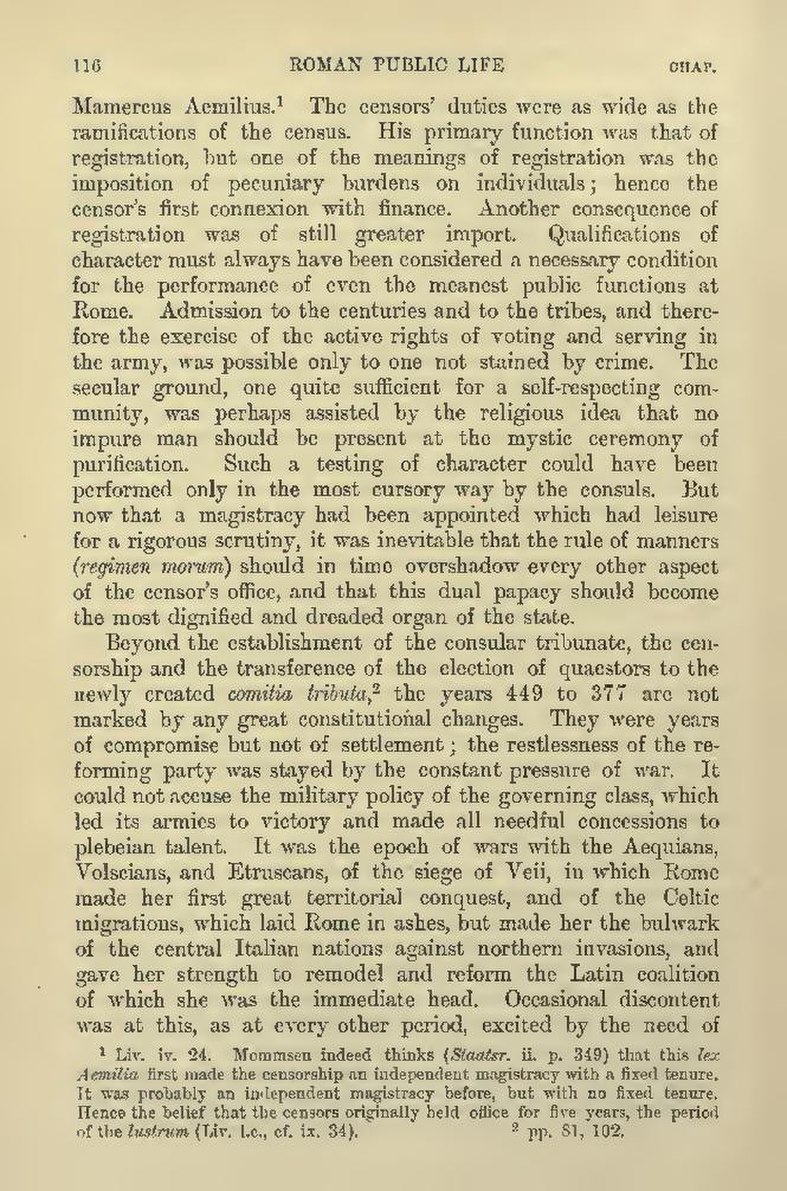Mamercus Aemilius.[1] The censors' duties were as wide as the ramifications of the census. His primary function was that of registration, but one of the meanings of registration was the imposition of pecuniary burdens on individuals; hence the censor's first connexion with finance. Another consequence of registration was of still greater import. Qualifications of character must always have been considered a necessary condition for the performance of even the meanest public functions at Rome. Admission to the centuries and to the tribes, and therefore the exercise of the active rights of voting and serving in the army, was possible only to one not stained by crime. The secular ground, one quite sufficient for a self-respecting community, was perhaps assisted by the religious idea that no impure man should be present at the mystic ceremony of purification. Such a testing of character could have been performed only in the most cursory way by the consuls. But now that a magistracy had been appointed which had leisure for a rigorous scrutiny, it was inevitable that the rule of manners (regimen morum) should in time overshadow every other aspect of the censor's office, and that this dual papacy should become the most dignified and dreaded organ of the state.
Beyond the establishment of the consular tribunate, the censorship and the transference of the election of quaestors to the newly created comitia tributa,[2] the years 449 to 377 are not marked by any great constitutional changes. They were years of compromise but not of settlement; the restlessness of the reforming party was stayed by the constant pressure of war. It could not accuse the military policy of the governing class, which led its armies to victory and made all needful concessions to plebeian talent. It was the epoch of wars with the Aequians, Volscians, and Etruscans, of the siege of Veii, in which Rome made her first great territorial conquest, and of the Celtic migrations, which laid Rome in ashes, but made her the bulwark of the central Italian nations against northern invasions, and gave her strength to remodel and reform the Latin coalition of which she was the immediate head. Occasional discontent was at this, as at every other period, excited by the need of
- ↑ Liv. iv. 24. Mommsen indeed thinks (Staatsr. ii. p. 349) that this lex Aemilia first made the censorship an independent magistracy with a fixed tenure. It was probably an independent magistracy before, but with no fixed tenure. Hence the belief that the censors originally held office for five years, the period of the lustrum (Liv. l.c., cf. ix. 34).
- ↑ pp. 81, 102.
